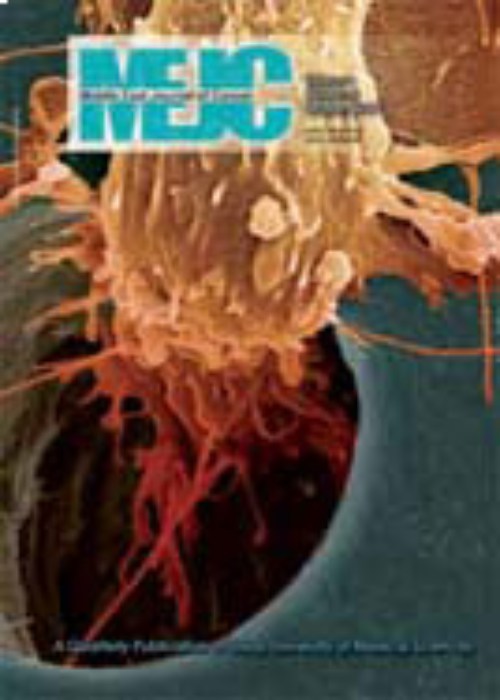Correlation of Serum Insulin-like Growth Factor 1 with Prostate Cancer
Author(s):
Abstract:
Background
Insulin-like growth factor-1 can act in both an autocrine and paracrine manner to promote normal growth and malignant cellular proliferation. The importance of this factor as a major regulatory peptide has been established for cells, in vitro and in vivo. However, the role of serum insulin-like growth factor-1 levels in the etiology of benign prostatic hyperplasia and prostate cancer has not received sufficient attention. The aim of this study was to determine the relationship between benign prostatic hyperplasia, prostate cancer, and serum insulin-like growth factor-1 levels.Methods
We collected blood samples from 68 individuals with prostate cancer (cases) and 68 individuals with benign prostatic hyperplasia (controls) who were patients at Imam Khomeini Hospital in Tehran, Iran. Those with benign prostatic hyperplasia had normal prostatic specific antigen levels <4 ng/ml and normal prostate according to digital rectal examination. The case group was selected from patients with pathologically confirmed prostate cancer. Insulin-like growth factor-1 concentrations were measured by a radio immunoassay kit. We used the t-test to compare insulin-like growth factor-1 levels between groups.Results
Patients in the prostate cancer group had a mean age of 68 years, whereas those with benign prostatic hyperplasia had a mean age of 65 years (P>0.05). Mean serum insulin-like growth factor-1 levels were 219 ng/ml for the case group and 133 ng/ml for the control group, which was significant (P=0.0009). We did not observe any correlation between age and insulin-like growth factor-1 in the case group (P=0.83, r= -0.47), however there was a significant correlation in the control group (P=0.007, r=0.549). Although correlation between prostate volume and serum insulin-like growth factor-1 levels was not statistically significant in the case group (P=0.38, r=0.213), there was a positive correlation observed in the control group (P<0.008, r=0.537).Conclusion
Our findings suggest that insulin-like growth factor-1 may have an etiologic role in prostate cancer. This interpretation is strengthened by the significant difference observed between serum insulin-like growth factor-1 levels in benign prostatic hyperplasia and prostate cancer patients. These results also offer additional opportunities for evaluating patients who have abnormal digital rectal exams or prostate specific antigen levels, yet their biopsies are normal. Under these circumstances, measurement of serum insulin-like growth factor-1 may assist with the decision for a second biopsy.Keywords:
Language:
English
Published:
Middle East Journal of Cancer, Volume:3 Issue: 4, Oct 2012
Page:
95
magiran.com/p1100636
دانلود و مطالعه متن این مقاله با یکی از روشهای زیر امکان پذیر است:
اشتراک شخصی
با عضویت و پرداخت آنلاین حق اشتراک یکساله به مبلغ 1,390,000ريال میتوانید 70 عنوان مطلب دانلود کنید!
اشتراک سازمانی
به کتابخانه دانشگاه یا محل کار خود پیشنهاد کنید تا اشتراک سازمانی این پایگاه را برای دسترسی نامحدود همه کاربران به متن مطالب تهیه نمایند!
توجه!
- حق عضویت دریافتی صرف حمایت از نشریات عضو و نگهداری، تکمیل و توسعه مگیران میشود.
- پرداخت حق اشتراک و دانلود مقالات اجازه بازنشر آن در سایر رسانههای چاپی و دیجیتال را به کاربر نمیدهد.
In order to view content subscription is required
Personal subscription
Subscribe magiran.com for 70 € euros via PayPal and download 70 articles during a year.
Organization subscription
Please contact us to subscribe your university or library for unlimited access!


